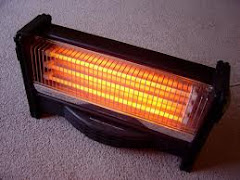Charlie Pritchard
DoB : September
30th, 1882
Appearances : 217
Tries scored : 21
Did you know?
Pritchard retired from International rugby in 1910, giving up a last chance to
play for Wales to allow his team mate from Newport to gain his first cap.
It was right and fitting that the original Welsh rugby
superstar, A.J.Gould, should be present on the 16th of December,
1905 to witness one of the sport’s great moments. The much fancied All Blacks
had come to Cardiff unbeaten, having scored 801 points on tour, and having
conceded only 22. The ex-Rodney Parade favourite turned selector was swept up
by the emotion of the day as Wales beat the tourists by just one score to nil. Gould
was out of his seat as Teddy Morgan ran towards the try line, waving his hat
and shouting excitedly. It was all a sign, perhaps, of the growing status of
the All Blacks as the team to beat in world rugby. It was also a sign of how
desperately the welsh wanted a seat at the top table.
The 1905 victory is often held up as a key moment in the
nation’s history, when Wales found a voice. It was the first occasion that the
national anthem was sung – a direct response to the mythical “Haka” – and the
game has been at the centre of a sense of “Welshness” ever since. In the run up
to the game, however, there was a great deal of self-doubt. The bruising Dave
Gallaher, the All Black skipper and the destroyer of opposition attacks, personified
the peceived physical superiority of the New Zealanders. Any side wishing to
challenge this side would have to subdue him, and not many gave five foot
Dickie Owens much of a chance.
The Welsh players agonised over their tactics. Should they
play the “Welsh Way”, moving the ball quickly away from the pack and attack
through the one area where they knew they had an edge, out in Gwyn Nicholls’
back line? Or should they seek to challenge the All Blacks in the forwards, and
try to win parity there? Opinion was
divided. Preparations were hampered by a glut of injuries, and a Trial match
resulted in a disastrous defeat for the Probables, with the Possibles winning
18-9.
As the days ticked by, the All Blacks continued to put
British rugby to the sword. It was clear that their superiority lay in their
seemingly invincible control of the scrummage, and Welsh preparations began to
focus on this area. Gallaher’s side scrummaged with only two men in the front
row, a tactic that allowed them to leave their engagement late enough for them
to always pack down with one of the two on the loose head side. This
effectively ensured a stream of All Black possession from the scrums, as well
as rendering the traditional third front row forward useless. Wales decided to
fight fire with fire, and practiced the same formation. They knew that once the
All Blacks had recovered from the initial shock, each and every scrum would be
a battle as both packs wrestled for the loose head position. The Welsh would
have to stand their ground. Over 40,000 Welshmen would expect nothing less.
Given the importance of a tight defence in the game plan, it
was no surprise to see one of the Welsh forwards being singled out for praise
on that day. The fearlessness of Newport’s Charlie Pritchard was well known
beyond the confines of Rodney Parade, and his tough tackling made him a feared
opponent. Rugby matches are won and lost in the innumerable collisions that
occur between the first whistle and the last, and Charlie Pritchard was the
master in that area. George Travers, the hard nut hooker who spent most of the
game eyeball to eyeball with the ferocious New Zealand forwards, afterwards
remarked that Pritchard’s tackling was a key component in the Welsh victory.
Travers described how his Newport colleague “sent ‘em down like nine pins”. Inevitably,
“Dromio” reported on the match, noting the fact that Pritchard “performed
prodigies of aggressive defence”. Charlie Pritchard had been put on Earth to
play in this game.
Born into a family of nine children in 1882, Charlie’s
father had been a founding member of the Black and Ambers. He was educated in
Bristol and in Newport, and worked in the wine trade when he left school. He
played his first senior game for Newport at the age of just 18, playing in
front of 12,000 people at St Helens. Pritchard played his part in defeating the
previously invincible All Whites. He became a fixture in the Newport side for
the next ten years, captaining the team for three seasons.
The Daily Mail noted that Charlie was “always in the thick
of the fight” in the match against the All Blacks in 1905, but there was more
to his game than brute force. Reports on games note his ability to beat
opponents with a powerful body swerve, and his strength in the scrums was
matched by his agility in the line outs. David Smith and Gareth Williams, in
their history of the WRU “Fields of Praise” note that what they call the
“Newport Legacy” was crucial to Welsh success in the first Golden Age of Welsh
rugby in the 1900’s. This legacy was as much to do with the club’s scientific
approach as much as a style of play, and Pritchard was an intelligent thinker
on the game. Although he was a man to have on your side in that crucial
collision area, Charlie was a firm believer in playing fair. Indeed, he wrote
some articles for the RFU on the matter, and his support for youth rugby showed
a belief that sport was important in his community. Charlie also arranged
charity matches, and on one occasion he kitted an invited team out in his own
collection of rugby shirts swopped after various club and international matches.
Quite what that collection would be worth now is anyone’s guess, but the whole
episode does give us a sense of his public spirited approach to life.
Charlie Pritchard was obviously officer material, so when he
joined the South Wales Borderers in the early stages of the war he was picked
out as a leader of men. By late October of 1915 he was a Captain in the 12th
Battalion of the Borderers, the 3rd Gwent. This was a “bantam”
battalion, made up of men who had initially failed to meet the requisite height
criteria of 5ft 3in for new recruits. As the losses of 1914 and early 1915
mounted, so the bar was lowered, and “Bantam” battalions were formed. The
athletic six foot frame of Charlie Pritchard must have dominated the parade
ground!
There were inevitable concerns over the standards of fitness
of the Bantams, so Pritchard and his men spent a lengthy period of time in
training. In the summer of 1916, however, the 3rd Gwent crossed the
Channel with the 40th Division and moved into trenches in the Loos
area of the Western Front. Marked by terraced miners’ cottages and coal heaps,
the boys from South wales must have wondered if they had just woken up from a
dream. It was a bleak, exposed part of the front line, with the destruction
from the failed offensive of autumn 1915 in evidence all around. Several
kilometres to the south of them, the Somme campaign was raging as Pritchard’s
men went into the trenches. It was bogged down by late summer too, but Haig’s
planners were insistent that pressure should be ratcheted up in the Loos sector
to stop the Germans sending their reserves to the Somme.
Charlie’s unit was ordered to raid a section of German
trenches near their position on the 13th August, 1916. Trench raids
were designed to be quick dashes across No Man’s Land. The aim was to grab a
prisoner who could be bundled back to British lines to be interrogated. As it
was important to keep a trench raid as quiet as possible, his men would have
been armed with clubs and knives. Charlie led his men across and dropped into
the German front line trench, and in the ensuing fight he subdued two Germans
just with his fists. Unfortunately, he was wounded during the fight, but they
were able to capture a Bavarian officer. On the return dash across No Man’s
Land, the German troops in nearby trenches were fully alerted to the situation,
and Charlie’s men were fired upon. He was wounded a second time, this time more
seriously. When he was back in the British trenches, it was clear that Charlie
would need medical help. The Bantams struggled to carry their officer back
along the narrow, slippery communication trenches to the medical post. The
severity of Charlie’s wound meant that he was transferred to No.1 Casualty
Clearing Station, near Chocques.
His last words were recorded thus.
“Have they got the Hun?”
The answer was yes – Charlie’s captured Bavarian was indeed
in custody, and undergoing interrogation.
“Well,” said Charlie, “at least I have done my bit.”
He died a short time later.
 Charlie’s words were quoted in the London Illustrated News
as an example of the sort of sacrifice that was required to win the war.
Charlie Pritchard displayed selfless leadership throughout his life, his final
words almost the stuff of fiction. The letter to his pregnant wife Florence said it all
– “The Battalion lost a gallant officer and a generous and chivalrous
gentleman.” The family was crushed by the loss. Charlie's young son Cliff took his air rifle out into the fields behind the house and shot a rabbit, which he put on the family dining table.
Charlie’s words were quoted in the London Illustrated News
as an example of the sort of sacrifice that was required to win the war.
Charlie Pritchard displayed selfless leadership throughout his life, his final
words almost the stuff of fiction. The letter to his pregnant wife Florence said it all
– “The Battalion lost a gallant officer and a generous and chivalrous
gentleman.” The family was crushed by the loss. Charlie's young son Cliff took his air rifle out into the fields behind the house and shot a rabbit, which he put on the family dining table. "That's for Dad" he said.
Florence gave birth to a daughter on December 10th 1916, and relatives tell of the pain felt by Florence and her daughter at this lost relationship. Of course there were many other fatherless children, orphaned by that dreadful war, but there is a particular poignancy about the Pritchard family’s loss. For Florence, the 14thof August, the date of Charlie’s death, was a difficult day to cope with for the rest of her life. Her daughter, the little girl who never knew her father, died in 1985 – on the 14th of August.







